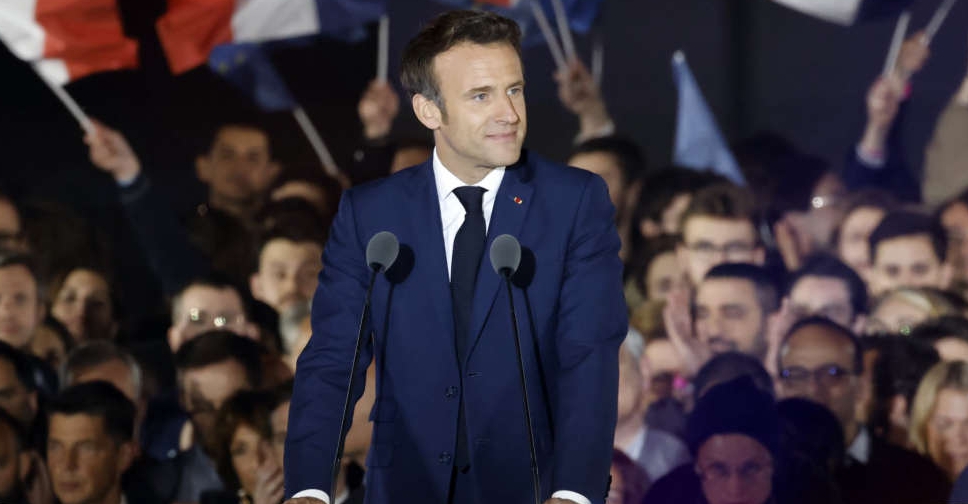
Emmanuel Macron comfortably defeated far-right rival Marine Le Pen in the second round of France's presidential election, winning 58.55 per cent of the votes against 41.45 per cent for Le Pen, final interior ministry figures showed on Monday.
Those figures compared to Macron's first victory in 2017, when Macron won 66.1 per cent of the vote against 33.9 per cent for Le Pen five years ago.
The abstention rate was 28.1 per cent against 25.4 per cent in 2017, marking the lowest turnout ever recorded in a French presidential election final since 1969.
His supporters erupted with joy as the results appeared on a giant screen at the Champ de Mars park by the Eiffel tower.
Leaders in Berlin, Brussels, London and beyond welcomed his defeat of the nationalist, eurosceptic Le Pen.
In his victory speech, Macron acknowledged that many had only voted for him only to keep Le Pen out and he promised to address the sense of many French that their living standards are slipping.
"Many in this country voted for me not because they support my ideas but to keep out those of the far-right. I want to thank them and know I owe them a debt in the years to come," he said.
"No one in France will be left by the wayside," he said in a message that had already been spread by senior ministers doing the rounds on French TV stations.
Two years of disruption from the pandemic and surging energy prices exacerbated by the Ukraine war catapulted economic issues to the fore of the campaign. The rising cost of living has become an increasing strain for the poorest in the country.
Le Pen, who at one stage of the campaign had trailed Macron by just a few points in opinion polls, quickly admitted defeat. But she vowed to keep up the fight with parliamentary elections in June.
"I will never abandon the French," she told supporters chanting "Marine! Marine!"
NO GRACE PERIOD
Macron can expect little or no grace period in a country whose stark political divisions have been brought into the open by an election in which radical parties scored well. Many expect the street protests that marred part of his first term to erupt again as he presses on with pro-business reforms.
"There will be continuity in government policy because the president has been reelected," Health Minister Olivier Veran said. "But we have also heard the French people's message."
How Macron now fares will depend on the looming parliamentary elections. Le Pen wants a nationalist alliance in a move that raises the prospect of her working with rival far-rightists like Eric Zemmour and her niece, Marion Marechal.
Hard-left Jean-Luc Melenchon, who emerged as by far the strongest force on the left of French politics, said he deserves to be prime minister - something that would force Macron into an awkward and stalemate-prone "cohabitation".
Outside France, Macron's victory was hailed as a reprieve for mainstream politics rocked in recent years by Britain's exit from the European Union, the 2016 election of Donald Trump and the rise of a new generation of nationalist leaders.
"Bravo Emmanuel," European Council President Charles Michel, wrote on Twitter. "In this turbulent period, we need a solid Europe and a France totally committed to a more sovereign and more strategic European Union."
"Congratulations to the President and a true friend @EmmanuelMacron on the election victory," Ukraine President Volodymyr Zelenskiy wrote on his Twitter account in early hours on Monday.
"The financial markets will breathe a collective sigh of relief following Macron's election victory," said Seema Shah, Chief Strategist at Principal Global Investors.




 Israel says it killed a Hamas commander in Lebanon
Israel says it killed a Hamas commander in Lebanon
 Four dead as Russian drone barrage hits Kharkiv homes
Four dead as Russian drone barrage hits Kharkiv homes
 Earthquake deaths top 3,100, Myanmar junta chief joins Bangkok summit
Earthquake deaths top 3,100, Myanmar junta chief joins Bangkok summit
 Hackers compromise 20k Australian pension funds in cyber attacks
Hackers compromise 20k Australian pension funds in cyber attacks



